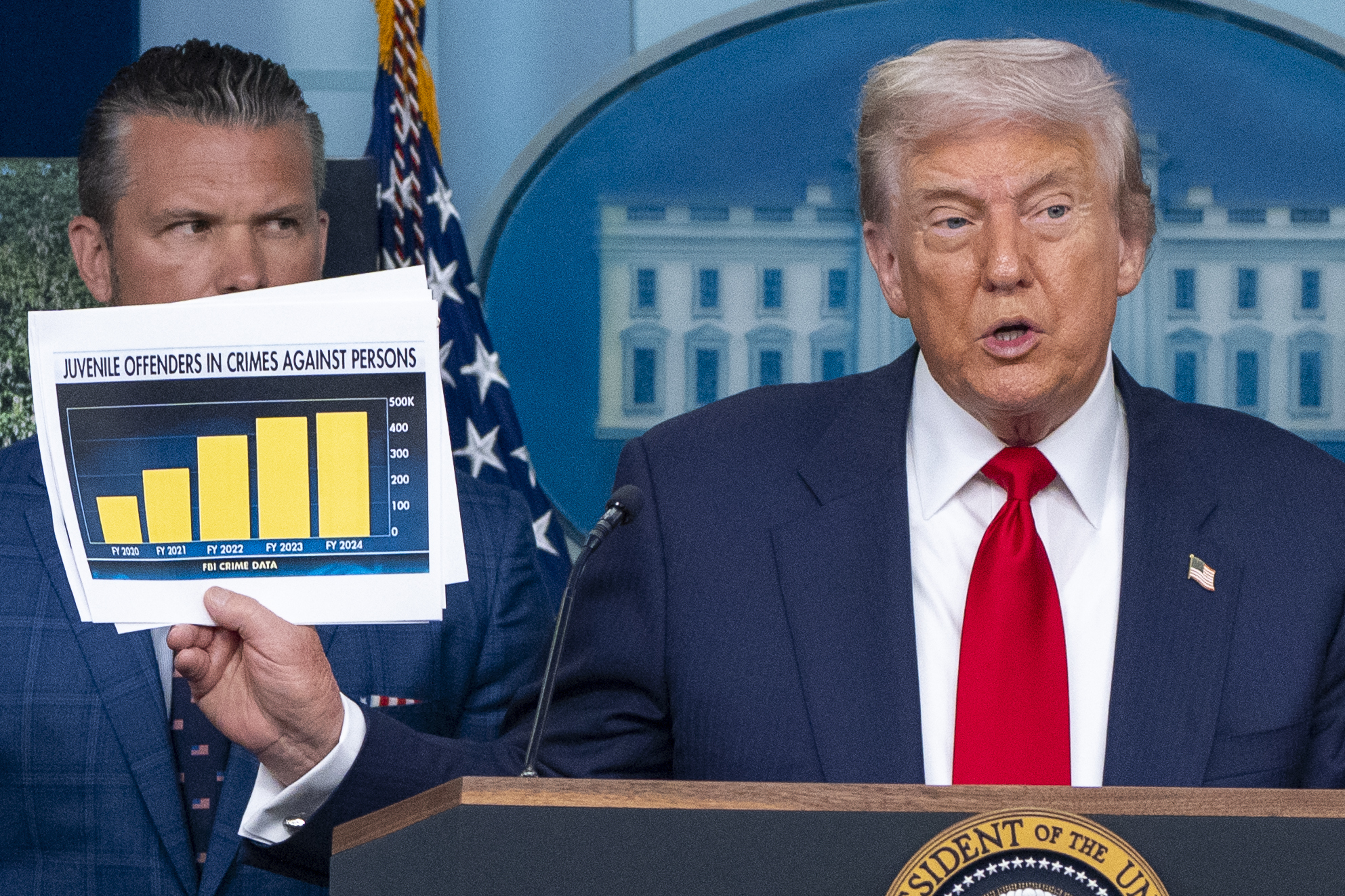
Like Barack Obama before him, Joe Biden will inherit the presidency at a moment of national crisis, after the country has been failed once again by right-wing contempt for empiricism and federal regulatory power.
Unlike Obama, though, when Biden comes to power, at least some of the resources that could usher us from despair to revival will already exist.
We can’t know whether Biden will be a successful president in toto, but we do know that he will advocate for a sound and humane response to the pandemic, and that his team will be more adept than President Trump’s at vaccinating the population against coronavirus. We know Congress may bequeath him a modest but real stimulus, and that as the public-health crisis abates, many millions of Americans—the ones who best-weathered the pandemic—will spend down at least some of the savings they accumulated over the past year, creating (we hope!) enough demand to provide jobs for the hundreds of thousands of other displaced workers who weren’t so lucky.
The best-case scenario for Biden’s first year in office is one most presidents would feel lucky to unfurl as a backdrop to year two, before his party faces voters again in midterm elections. But even in a scenario like that, the political benefit won’t accrete to Democrats gravitationally—Biden will confront critics who dispute that his presidency has been a success, and rivals who seek credit for the improvements that occur on his watch. The risk is two fold: That Biden will not do enough to distinguish the recovery as one of his own making, and that he and his team will assume good policy will alchemize into good politics automatically, without doing the additional mundane work of pre-empting those who would deny him credit.
In a Tuesday Washington Post column, Greg Sargent argued that if Biden executes a public-health response that vanquishes coronavirus, while easing civil strife over preventive measures like mask-wearing, it won’t just redound to the Democratic Party’s benefit, but to the benefit of liberalism as a governing creed, against the tide of illiberalism embodied both by Trump’s failed coronavirus response, and by the 75 million Americans who voted for him anyhow.
This is plausible, but under-theorized. Six or nine months from now we might really find ourselves living something like normal life, with the virus under control, businesses and jobs rescued, people making up for lost time with friends and family. Optimism will flourish in an environment like that, but the question of how we prevailed will be hotly contested.
Big Tent
The vaccine that will beat coronavirus has actually existed since before Donald Trump understood vaccines would be necessary to undo all of his deadly failures, but it is already dogma on the right that Trump more or less engineered the vaccine alone in a laboratory, and Republicans will foam at the mouth if anyone of significance credits Biden with any aspect of the its development or distribution.
Likewise, Republicans appear to be willing to pass one more modest coronavirus-relief bill, but only while Trump is still president, after which they will seek to turn off the spigot. If the coming stimulus proves inadequate, they will blame Biden for the slow recovery that ensues, but if the economy rebounds quickly next year—well, that was thanks to Trump!
It doesn’t require years of close study to understand how Republicans will parry with the reality of life improving under a normal and competent Democratic president. “Thanks to the Trump vaccine and the Trump economic recovery measures, including the rejection of new lockdowns,” Mitch McConnell might say, “the virus has been crushed and the economy is roaring back, which means we can now turn to reducing the horrible deficits we incurred to address the emergency.”
Biden won’t necessarily have to contend with only right-wing critics either. Many progressives will be similarly reluctant to treat a rapid public-health and economic recovery as vindication for liberalism, though their motives will be purer. On the right, the partisan and tribal need to credit Trump for anything good Biden presides over will overwhelm fact and reason. The criticism on the left will be different: That Biden will have stamped out a virus and shepherded the economy back to health without having made opportunity out of crisis—and without steeling the country against future shocks.
One of Biden’s savviest appeals after he won the primary was seeding the idea that the coronavirus crisis had changed everything, and would require him to govern more like FDR than like the across-the-aisle dealmaker he believes himself to be. He can be forgiven for having smaller-than-FDR-sized majorities, but to a remarkable degree it was all a feint. Or at least, the way his allies depict the challenges he’ll confront makes it seem like one. Apart from the near-term need for more economic relief, he’s made no significant long-term changes to the platform he adopted before coronavirus, including any that would address the systemic failures the virus uncovered.
If that doesn’t change, progressives will notice, and they won’t be entirely wrong. Some will stipulate that Biden’s continued opposition to Medicare for all amounts to a failure of liberalism, but we can leave all pre-existing criticisms off the table, and the absence of long-term defenses against future calamities still stands out.
Coronavirus will leave a long trail of misery in its wake: Many people who’ve lost their jobs will never regain footing; many people with long-haul illness will find resuming their own lives impossible, due either to infirmity, economic distress, or both. The fact that Biden’s agenda is the most progressive in a half century isn’t an answer for these victims, whose crises materialized after Biden had already adopted his agenda.
Biden will find it much easier to claim ownership over his own successes if he refuses to coast on the ones that will come easily. With the virus under control, he can propose a number of longer-term reforms that will help those most affected by this disaster, and leave the country better situated to weather the next one. And he can pitch these to the country as measures that will complete our current recovery and protect Americans in the future.
Biden likely feels hidebound to oppose Medicare for all no matter what fate has in store for America, but Medicare already includes a special program to cover people under 65 with severe kidney disease, and he could propose creating a similar carveout to cover costs and treatments associated with long-haul post-COVID illness or COVID-inflicted disability. The pro-Trump White House security chief, who lost his lower right leg to the virus, shouldn’t have to rely on GoFundMe for the rest of his life, just because Trump didn’t deem him worthy of the antibody therapy Trump husbanded for himself and his political allies. Biden should similarly fight for restitution for those who lost their homes and jobs to the crisis, no matter the cost of making them whole.
This would be just, but it would also be politically wise: If Biden is fighting for every last victim while Republicans are trying to shut relief efforts down, whom is the public likelier to credit with ushering in the broader recovery? By contrast, if Biden simply lets the vaccine work its magic, the notion that he saved the country from Trump’s wretched coronavirus failures will be a harder sell.
Beyond the immediate crisis, a standing disaster-relief program—one that institutionalizes the temporary wage-replacement and small-business support programs Congress built on the fly this year—would insure the country against the next pandemic, even the next ordinary recession, so that future governments won’t have to start from scratch while pain spreads across the nation. It would also require few if any immediate expenditures (unless another recession strikes, or COVID-21 infects the population, next summer).
Obama presided over a similar two-step by prioritizing immediate economic aid, then enacting long-term reforms to the financial system to insure against a similar, future collapse. But there are lessons for Biden in the shortcomings. The most trenchant critiques of Obama’s response to the financial crisis invoke the toll it took on the appeal of an active liberal government. Most who lost their homes to foreclosure, or their labor-market clout to long-term unemployment, were likely unswayed by political arguments about the supposed impediments to passing a relief bill larger than $1 trillion; or by the theoretical arguments against bailing out homeowners instead of banks. To this day, the recovery act remains a source of controversy, Republicans have chipped away at his Wall Street reforms, the Wall Street bailout Obama inherited remains toxic, and we thus reflect on the whole-of-government government response to the great recession as a mixed bag and a missed political opportunity.
Republicans might block every proposal Biden sends up to Capitol Hill when the immediate crisis is behind us, but a crisis of liberalism will fester in the lasting wreckage of coronavirus if he doesn’t propose anything at all.




